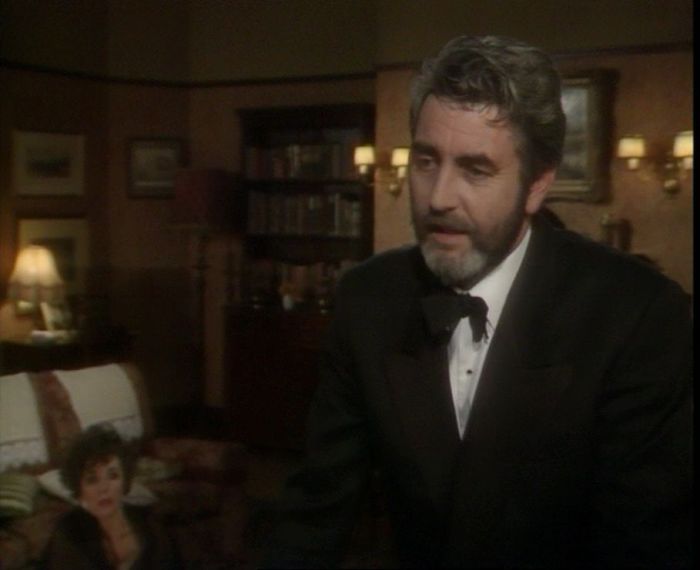
Tonight at 8:30 was the umbrella title for a series of ten one-act plays written by Noël Coward and performed in London and New York during 1936 and 1937. One of the plays (Star Chamber) was quickly dropped but the other nine were performed regularly in various permutations of three per evening.
In 1991, eight of the ten plays (excluding Star Chamber and We Were Dancing) were adapted for this BBC series starring Joan Collins. Given that all the plays had originally been written as vehicles for Gertrude Lawrence, there was clearly plenty of good material here for a versatile leading actress.
However, whether that actress was Joan Collins was a topic somewhat debated at the time. Although Collins’ career received a massive boost thanks to her role in Dynasty between 1981 and 1989, she was still viewed by some critics with a degree of suspicion (who presumably didn’t consider a decade or so performing in Dynasty to be real acting).
Having not rewatched the series for a while, I’ve found it refreshing to come back to the episodes with few preconceptions, except a general anticipation about the first rate casts ….
The first thing to note is that the series has an opening title sequence to die for. Set in London’s glittering West End, we see a number of stars – led by Joanie of course – making their way to the theatre for tonight’s performance. It helps to highlight Tonight at 8:30‘s rep-like nature – there’s ex-husband Anthony Newley all smiles, Denis Quilley on his bike, a dapper John Alderton taking time to sign an autograph, Reg Varney getting out of a taxi, Joan Sims walking to the stage door ….
None of them appear with Joan Collins in tonight’s production, but we don’t do badly for performers. John Nettles (complete with a ferocious looking beard) is Peter Gilpin, married to Collins’ Piggie. Nettles delivers all of his dialogue in a rather clipped fashion – it’s quite the turn.
Siân Phillips and Nickolas Grace are spot on as two of Piggie and Peter’s best pals – Clare Wedderburn and Bogey Gosling. Phillips is the recipient of some of the best lines (Clare’s description of a nightmare night out at the Cafe De Paris – all thanks to a performer whose duck quacks out Land of Hope and Glory once its bottom has been pinched – for example).
Piggie, Peter, Clare and Bogey are a perfect interlocking quartet (with a few other minor players added to the mix). So the introduction of Mr and Mrs Wadham (Bernard Cribbins and Miriam Margoyles) helps to shake things up a little. They’re colonials (he’s in rubber) who Piggie met once and, hospitable to a fault, decides to invite round for drinks.
But as the conversation continues it becomes clear that they’re not the people Piggie believed them to be. This leads to a frantic barrage of subtle (and not so subtle) questioning to discover their true identities. To be honest there’s no real mystery or sense of achievement once this question has been answered – with only thirty minutes to play with, the whole setup is simply an excuse for a large dollop of Coward wit (I daresay we’ll be saying that again as the series proceeds).
Poor Mr and Mrs Wadham are somewhat mistreated but always with the upmost courtesy, which means that both sides part with total equanimity. Margoyles tackles her role – a somewhat pushy social climber – perfectly whilst Cribbins is content to sit back and react with resignation to the chaos unfolding around him.
Despite the opening West End flavour, the series was recorded in the studio rather than on location at a theatre. It would have been interesting to have had the feel of a theatrical night out, as what we end up with here slightly misfires.
The direction is fine – multi-camera VT, largely concentrating on a single set (the drawing room). It’s the laugh track which rather disconcerts me. I find it hard to believe that canned laughter was used, but it certainly doesn’t feel natural. Possibly the completed recording was shown to a studio audience (a not uncommon sitcom practice) but something odd seems to have happened somewhere down the line. I’d like to hear Hands Across The Sea without the laughter, I certainly think the production would benefit.
A decent opener then (even allowing for the strange audience participation) with Joan Collins in her element as the distracted, but always unfailingly polite, society hostess.
















